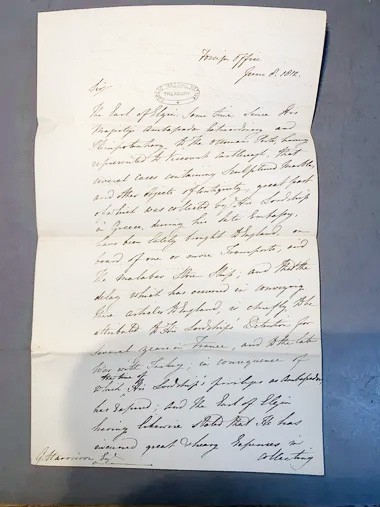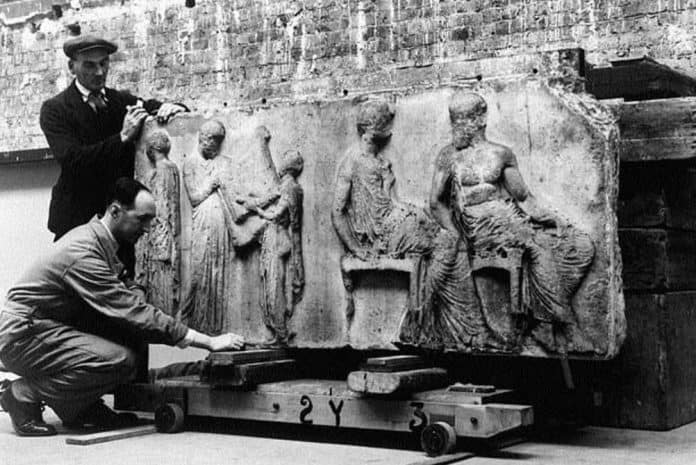New evidence suggests that Lord Elgin imported the Parthenon Sculptures into Britain without paying customs tax following political interference from the foreign secretary at the time, reports The Guardian.
Per The Guardian, Daniel Simpson, a postdoctoral research assistant at the University of Cambridge’s Museum of Archaeologyand Anthropology, who uncovered the evidence among customs records at the National Archives in Kew, said the letters which date from the early 19th century, show that after Elgin controversially stripped them from the frieze of the Parthenon in Athens, he was helped to bring huge shipments of the sculptures to Britain by a senior minister, who “knew what Elgin was up to”.

Simpson said that Viscount Castlereagh, the foreign secretary, instructed officials in 1812 to allow Lord Elgin to import a huge consignment of 86 cases of the marbles “in the same manner as the former part of his collection, duty free”.
“In my view Castlereagh probably always intended the marbles to become part of the national collection, and used Elgin as a convenient way of separating government from the controversial practice of taking them from the Parthenon,” said Daniel Simpson.
If so, “this [would] implicate the government more closely in the debate about the fate of the marbles today – the government was more responsible for taking them than has been assumed”. he added.
'Geoffrey Robertson KC, leading advocate for the return of the Parthenon Sculptures to Greece said the new letters “add to the considerable evidence that the British government was responsible, in law, for Elgin’s heist, an unauthorised removal he achieved by copious bribery of local Turkish officials so they would turn a blind eye while his workmen ripped the statues from the temple walls. In international law, the conduct of an ambassador engages the responsibility of his state.
“These new documents show that the government aided and abetted the theft by permitting the marbles to enter without customs inspection or duties.”
Meanwhile, a spokesperson for the UK Department for Digital, Culture, Media and Sport said: “The Parthenon sculptures in the British Museum are legally owned by the trustees of the museum, which is operationally independent of government. Decisions relating to the care and management of its collections are a matter for the trustees.”


